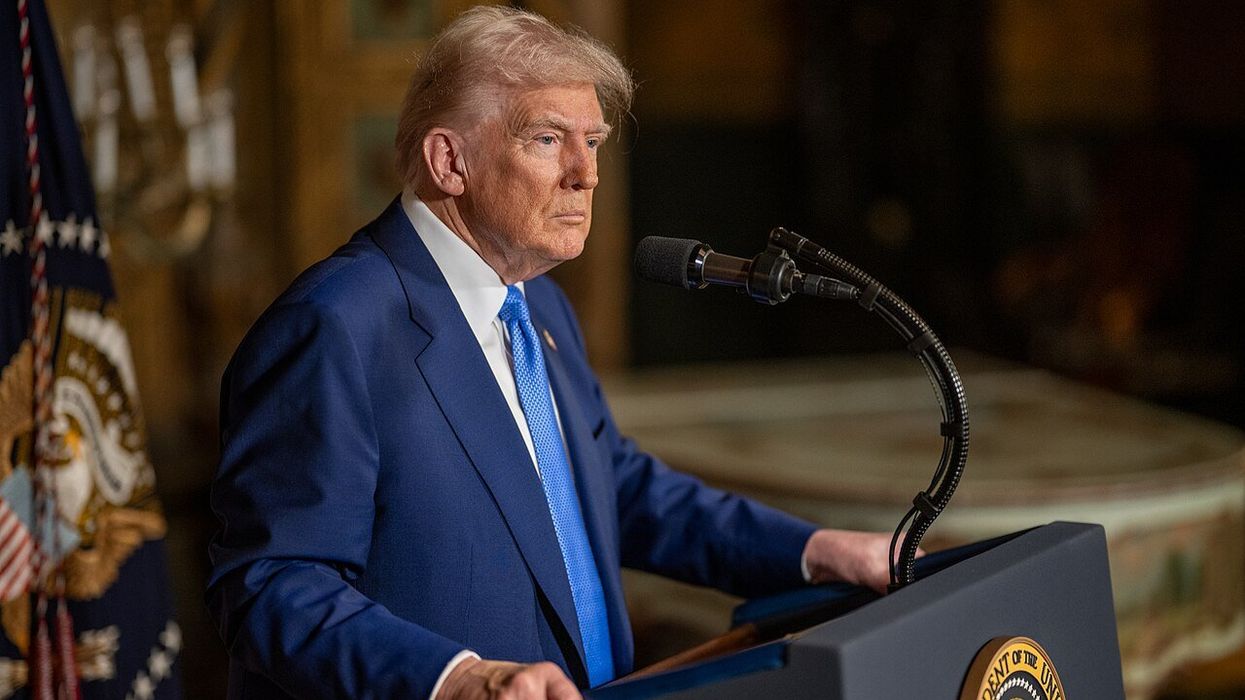Back in 1941, attorney Ernst Fraenkel — a German Jew who fled Nazi Germany in 1939 and moved to the United States — wrote a book called "The Dual State," which legal scholars are still talking about 84 years later.
Fraenkel's "dual state" theory refers to a legal black hole in which people find themselves cut off from due process and the usual legal protections don't apply to them.
In an article published on May 3, the New York Times' Amanda Taub applies this concept to Kilmar Ábrego García — a Salvadoran man who is imprisoned in El Salvador under an agreement between U.S. President Donald Trump and Salvadoran President Nayib Bukele. The U.S. Supreme Court upheld a lower federal court ruling ordering the Trump Administration to "facilitate" García's release, yet he remains in prison.
READ MORE: What's the biggest gaffe, blooper or blunder a recent president has made? It depends on this
The "dual state," Taub warns, is alive and well in the U.S. during Trump's second presidency.
"This week, when asked about the case of Kilmar Ábrego García, a Salvadoran immigrant and Maryland father of three who was deported from Maryland to CECOT as a result of 'administrative error,'" the Times reporter explains, "Mr. Trump told a reporter that he has the power to free Mr. Abrego García but won’t do so — despite a Supreme Court order to 'facilitate' his release. Those claims, along with the Trump Administration's broadly resistant attitude to court orders, its arrests of foreign students for their political activism and its wide-ranging campaign of retribution and intimidation against law firms and universities, have raised alarms that the country is hurtling into a new era of lawlessness."
Taub continues, "But there's a more precise way to understand the Trump Administration's approach to the law, and its potential dangers: the concept of the 'dual state.' First developed by a German lawyer named Ernst Fraenkel in the 1930s, the dual-state theory posits that authoritarianism can take hold in small pockets, even while the broader legal system appears to function more or less normally. In his 1941 book 'The Dual State,' Fraenkel, who was Jewish, argued that within Nazi Germany, there were, in effect, two interlinked systems: one in which most laws and many rights still applied; and alongside it a zone of authoritarianism, in which government power was unbounded."
Fraenkel, Taub notes, spoke of a "normative state" and a "prerogative state" — adding, "But it is perhaps clearer to think of them as the 'zone of legality' and the 'legal abyss.'"
READ MORE: 'The stuff of nightmares': AOC apparently 'lives rent-free' in JD Vance's head
"Fraenkel's crucial observation was that in a dual state, authoritarianism arrives much sooner for some people than others," according to Taub. "Those unlucky enough to fall into the legal abyss would find themselves subjected to uncontrolled state violence, while life continued largely as normal for others. Today, scholars say, the Trump Administration appears to be claiming the right to create its own legal abyss. Courts have not yet acceded, and it remains unclear whether the administration will succeed in acquiring such powers. But some of the most vulnerable targets have already been swallowed up. And if left unchecked, the legal abyss can grow ever wider."
READ MORE: This children’s book is a 'cautionary tale' about Trump’s endless 'demands': ex-RNC chair
Read Amanda Taub's full New York Times article at this link (subscription required).


